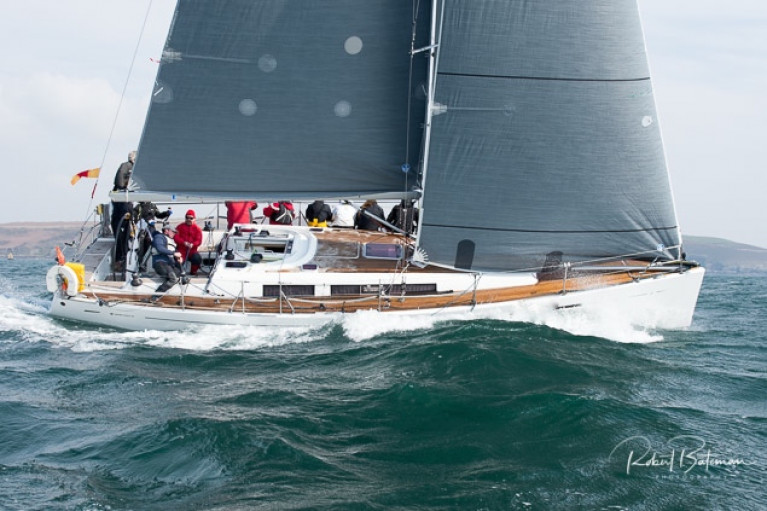Displaying items by tag: Annamarie Murphy
The Murphy Family & Nieulargo are "Sailors of the Month" for August
There are many boats in Ireland that are in the happy position of being regarded as one of the family, yet few fulfil that role so completely as Denis and Annamarie Murphy of Crosshaven's beloved Grand Soleil 40 Nieulargo. Aboard her, guesting superstars are swept into the onboard mood so totally that they become "honorary Murphys", and as likely as not when Nieulargo confidently overtakes you, you'll find that one of the talented Murphy sisters is serenely on the helm.
 "One of the talented Murphy sisters will be on the helm….". Nieulargo in action at the resumption of club racing at the Royal Cork YC on Thursday 9th July 2020. Photo: Robert Bateman
"One of the talented Murphy sisters will be on the helm….". Nieulargo in action at the resumption of club racing at the Royal Cork YC on Thursday 9th July 2020. Photo: Robert Bateman
This very complete approach reached new heights in August, when Nieulargo took line honours and the overall win in the Kinsale-Fasnet-Kinsale race, and then a fortnight later took the overall win and second in line honours in the Fastnet 450. The Irish sailing world is a better place for Nieulargo being at the heart of it, and she puts us in the happy position of being able to honour another special Irish sailing family for the second month in a row.
 Nieulargo's crew after winning the Fastnet 450 are (left to right, standing) Denis, Annamarie & Molly Murphy, Mark "Nipper" Murphy (no relation), Killian Collins and Clive O'Shea, front row Mia Murphy, Cian Byrne, James Fegan and Nin O'Leary. Photo: North Sails
Nieulargo's crew after winning the Fastnet 450 are (left to right, standing) Denis, Annamarie & Molly Murphy, Mark "Nipper" Murphy (no relation), Killian Collins and Clive O'Shea, front row Mia Murphy, Cian Byrne, James Fegan and Nin O'Leary. Photo: North Sails




























































